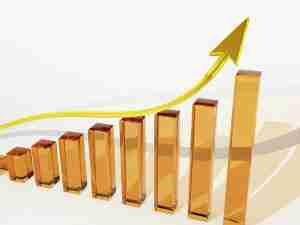Ukraine protesters hold firm, defying riot police
By: Reuters | Dec 10 2013 at 06:11 PM | International Trade
Thousands of Ukrainian protesters huddled by braziers in their tented camp in the snowbound capital Kiev, in defiance of riot police who took up positions throughout the capital as a deadline to clear the streets expired.
In a second week of protests against President Viktor Yanukovich’s decision to abandon a trade deal with the EU in favour of closer ties with Russia, demonstrators feared the arrival of riot police heralded a plan to crush them by force.
“We are expecting the break-up by police of peaceful demonstrators,” Vitaly Klitschko, a heavyweight boxing champion who has emerged as the highest profile opposition leader, said. “If blood is spilled during this dispersing, this blood will be on the hands of the person who ordered it ... Yanukovich.”
Yanukovich is expected to meet the EU foreign affairs chief on Tuesday as well as three former Ukrainian presidents who have proposed talks. The moves are among the president’s first apparent concessions since the crisis erupted.
But in a sign of a firm hand, masked police raided the office of Fatherland, a major opposition party whose jailed leader Yulia Tymoshenko the EU considers a political prisoner.
Liberals and nationalists have taken to the streets for demonstrations that have at times drawn hundreds of thousands. Thousands have also maintained an around-the-clock protest camp in the city centre, blocked roads, besieged government buildings and occupied the capital’s city hall.
On Monday the police managed to avoid violence while pushing protesters back from positions around some government buildings. In one instance, a column four deep inched protesters down one icy road from the cabinet building.
Hundreds of thousands of people marched on Sunday, the second weekend in a row that such huge crowds have vented fury at a government they accuse of returning the country to Kremlin control. In a potent symbol, they tore down and smashed the capital’s main statue of Soviet founder Vladimir Lenin.
A week earlier, baton wielding police injured scores of people at similar demonstrations. The police have since held back from using force to dislodge the protesters, but gave them five days from last Thursday to leave the streets.
The protesters say they will not go.
“We will stand here till the end to defend our rights,” said Sergei Kuzan, 29, a lawyer, part of a self-appointed security team ready to defend barricades at the main tented camp in Kiev’s central Independence Square. “My task is not to let the police through, nor the provocateurs.”
The tented vigil in freezing temperatures copies a tactic from the “Orange Revolution” in 2004 which successfully overturned a fraudulent election victory by Yanukovich.
Divisions
Ukraine’s dire finances have both provoked the crisis and been worsened by it. EU leaders say their trade pact would have brought investment. But Ukraine’s Soviet-era industry relies on Russian natural gas, giving the Kremlin enormous leverage.
Kiev owes just under $4 billion in debt repayments and Russian gas bills in the first three months of 2014. Its foreign reserves have eroded to prop up the local hryvnia currency. Central Bank figures on Friday revealed only enough foreign currency on hand for less than two months of imports.
It now costs more than $1 million a year to insure exposure to $10 million of Ukrainian debt over a five-year period, costs that have risen as the crisis deepened.
Yanukovich met Russian President Vladimir Putin last week. Little was revealed of the details of an agreement between them, raising opposition suspicions that Yanukovich had agreed to join a Russian-dominated customs union of ex-Soviet states, which would bury prospects for trade deals with Europe.
The crisis has divided Ukraine’s 46 million people between its mainly Russian-speaking East, where many view Moscow as a source of stability, and its West, where many native Ukrainian-speakers hope for integration into the European mainstream and despise Russia for decades of harsh Soviet-era oppression.
“Historians will say that this is a civil movement by people who do not want to return to the Soviet Union, who want to be free and live better,” said Stepan Kubiv, a politician and former banker who is helping to organise volunteers at the square.
EU foreign policy chief Catherine Ashton will visit Kiev on Tuesday and Wednesday to meet Yanukovich and opposition leaders. European politicians, in Kiev for a security conference last week, have visited the opposition camp to show solidarity. (Reuters)








